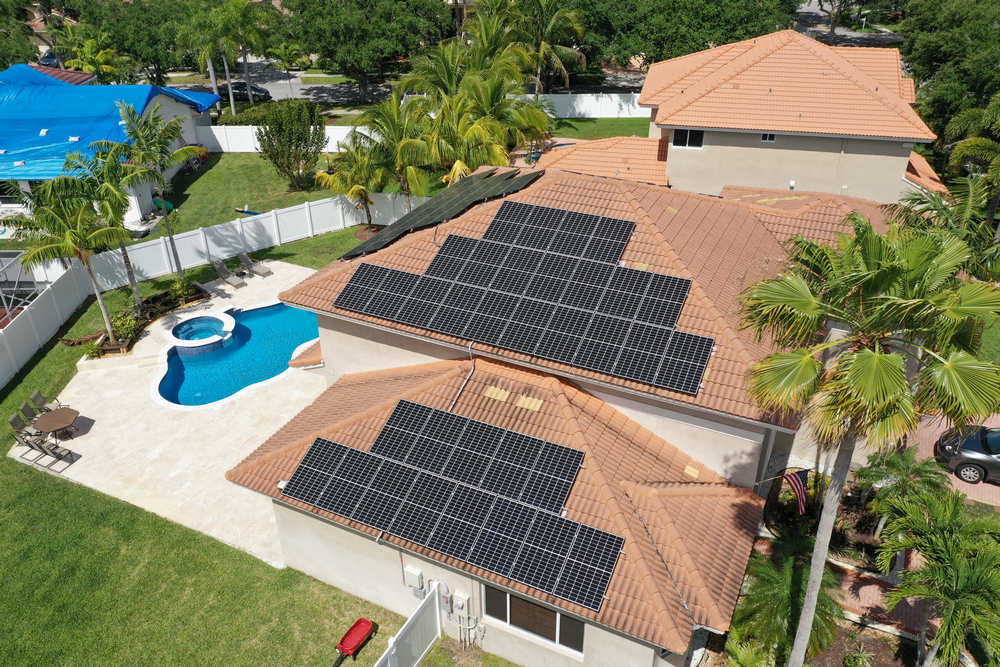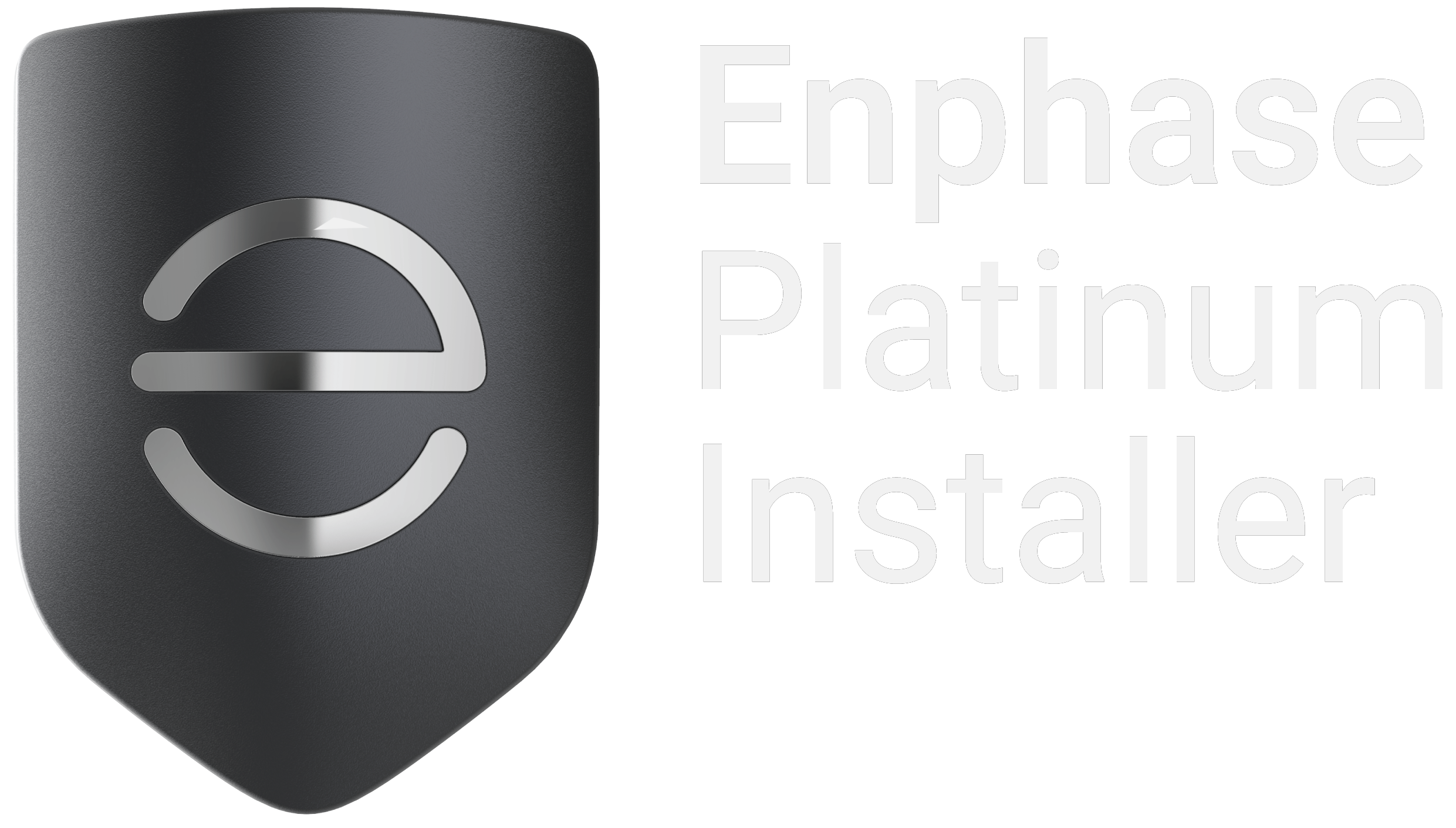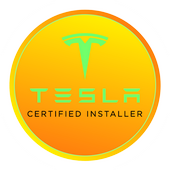
Solar energy isn’t for everyone. That might be strange coming from a solar installer, but it’s true. Solar energy is a great way for many to save money while helping the environment, but how can you tell if you’re someone, it can benefit? Here are 4 ways to tell if solar is right for you.
1. Your Roof or Ground Space
First, let’s discuss space. There are two places your solar system can be installed: on your roof and the ground around your home. Determining which one is best for you depends on a couple of characteristics.
How Big Is Your Roof?
Solar panels are becoming more efficient, so you’ll need fewer to power your home. However, they still take up some space. You have to determine how much of your roof you’d be willing to dedicate to solar panels. For example, a 5-kW system typically covers a $60 electricity bill and around 280 sq. ft. of space.
Next, consider how much sunlight that space on your roof gets. South-facing roofs are ideal for solar panels because they get the most sun exposure. West- and east-facing roofs are also options; you just have to add a few more panels at little cost.
Consider the pitch of your roof, too. If your roof is flat, ballast mount systems allow your panels to be tilted to keep production high. Roofs angled at 30 to 45 degrees are ideal but not essential for a productive roof mount.
Lastly, you’ll want to look at trees, buildings, and other things that cast shadows on your roof. Tall buildings could cast shadows on your system if you live in the city. If your home is tucked away in the woods and blocked by trees most of the day, your solar system may not get enough sunlight to produce the electricity you need.
What Is the Condition of Your Roof?
One of the most dreaded repairs is a roof repair. If your roof isn’t in the best shape, you may have to fix it before going solar. Repairing your roof before installing solar reduces the risk of structural issues and having to remove and reinstall your panels later. Once installed, solar panels can protect your roof from the elements and help extend its lifespan.
If you’re worried about holes in your roof, that’s valid, but don’t fear. At Sunlight Solar, Inc., we consider your roof’s well-being and ensure your solar panels are mounted securely, won’t damage the roof, and keep the elements out. We can install solar on all roofs, including metal, shingled, flat, and more. If you’re concerned with your roof’s warranty, your solar installer can double-check with your roofing contractor to ensure adding solar won’t void it.
How Much Ground Space Do You Have?
Solar panels can be installed as a ground mount in many locations. Unlike a roof mount, ground mounts can be positioned to face south at the best tilt. Just be mindful that they will take up space on your land and might cost more than a roof mount.
2. Financial Consideration
Do You Pay Federal Taxes?
If you pay federal taxes, you’ll be able to take advantage of a huge solar incentive: the solar investment tax credit from the federal government. This incentive returns 30% of your solar system’s cost by reducing your owed taxes. Solar can be a great investment with a high return if you can take advantage of this incentive. If you’re a business, you’ll also be able to take advantage of accelerated depreciation, which allows you to push your solar system’s depreciation savings to the first year. But installation costs will shrink that return on investment (ROI) and increase your payback time if you don’t pay federal taxes.
Can You Take Advantage of Other Incentives?
Some states and other utilities offer incentives for going solar. In addition to the federal tax credit and accelerated depreciation, these additional incentives can bring the price of solar down. Check out this list of other incentives the state of California offers.
What Are Your Financing Options?
While solar costs you much less in the long run than what you would pay for electricity from the city’s grid, you will have to pay for the system upfront. Whether through cash, loans, or capital leases, your ability to fund the project is a key factor when deciding whether or not solar is right for you. If these aren’t options, you may be able to look into community solar, operating leases, or power purchase agreements (PPAs).
3. Electricity Usage
Does Your Home Use a Lot of Electricity?
Solar pays for itself by providing owners with free electricity. The more electricity you use, and the more it provides for you, the more money you’ll save throughout the system’s life.
Solar could save you substantial money if you live in a large house with high electric bills. If you live in a small home with a small electricity bill, installing solar might not offer you the best financial benefits. You’ll likely have a long payback period, but you’ll enjoy the environmental benefits.
Are Your Electric Rates High?
The higher your electricity rates are, the more money you spend purchasing electricity from the city’s grid. The bad news is that rates will only continue to increase. Solar payback will be quicker if you live in an area with high electricity rates, and your ROI will be much higher. Even if you have relatively inexpensive electricity rates, solar can still be a great option because free electricity is the one thing that’s better than inexpensive electricity.
4. Your State/Location
What’s The Weather Like?
While it’s true that a solar system in Phoenix doesn’t produce the same amount of electricity as a solar system in Portland, solar is profitable in all types of climates. Your solar installer should include an estimate that considers your local weather, so you can see how the weather could impact the system’s production. But believe it or not, the climate affects your solar’s payback less than you may think, but you should still consider it before switching.
Does Your State Have Net Metering?
Net metering is an excellent program for solar owners. Because solar systems produce energy when the sun is shining, net metering allows you to “store” any extra energy produced for all times of the day and all types of weather. Many states have net metering. California offers net metering programs to help you power your home around the clock.
Does Your State Have an SREC Market?
Solar renewable energy credits (SRECs) allow solar system owners to get even more money from their solar energy investment. SRECs are credits solar producers receive for every 1,000 kilowatt-hours (aka one megawatt-hour). These credits are then sold on the SREC market so the state can meet its Renewable Portfolio Standard.
Take the Next Step
If you’re considering solar energy, this blog gives you a place to start. The next step is to request a free quote from Sunlight Solar Inc. Our solar experts will provide a quote with the information to help you decide if solar is right for you. Call us at (858) 564-8032, or click here to get started!






